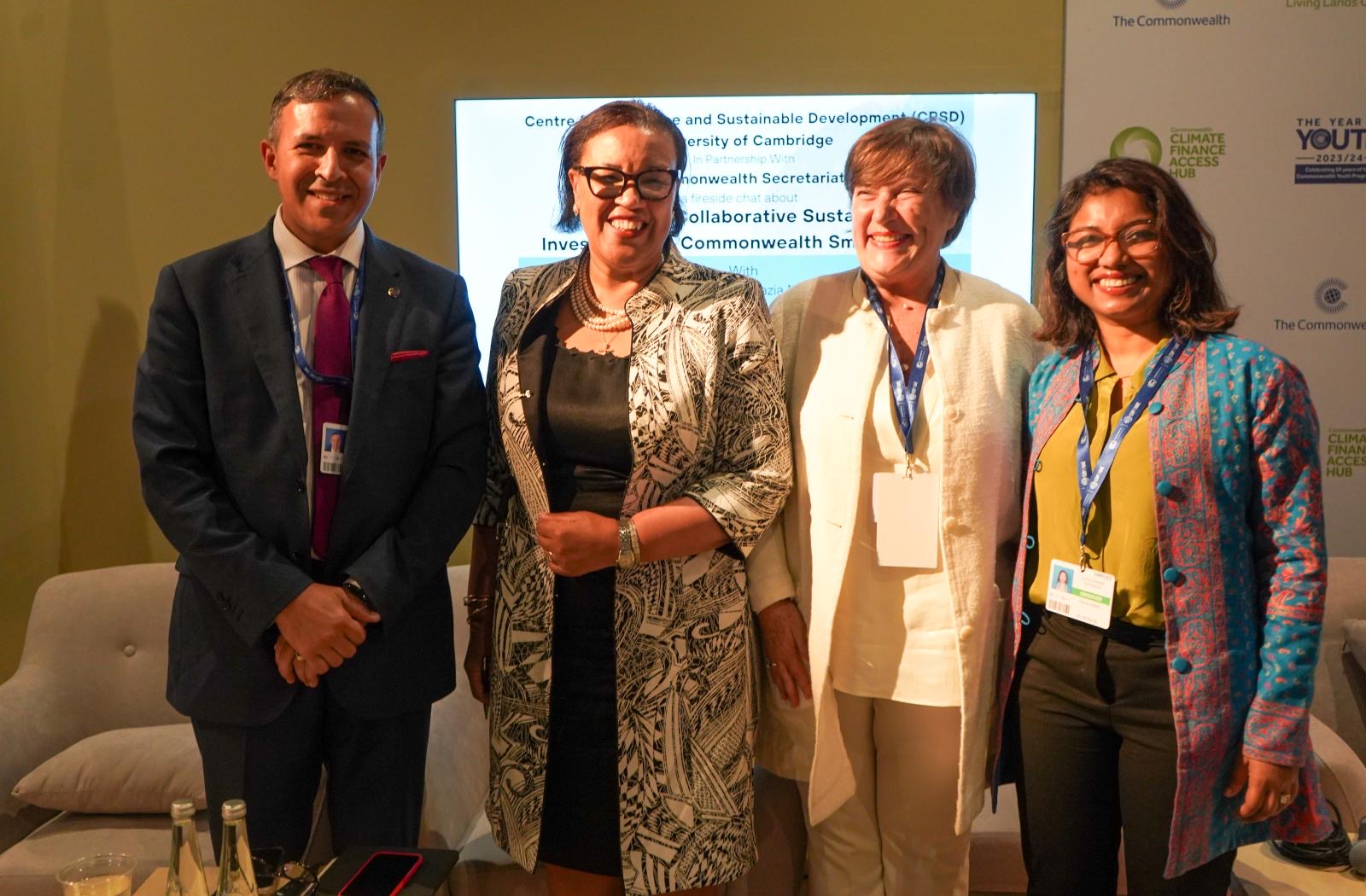The panel recognised physical and non-physical vulnerabilities. The Commonwealth Secretariat invited the CRSD team to COP28 to share results from our collaborative action-research. We co-developed not only a theory of change but also gathered and analysed evidence which has in turn empowered 33 SIDS to attract sustainable finance to reconstruct a resilient economy post-COVID19. At COP28, alongside high-level speakers, the participants discussed the value of co-creation and collaboration, which is at the heart of applying systems thinking in the political economics theories of accessing climate finance.
Secretary General Rt Hon Patricia Scotland, KC, emphasised the initiative's impact:
Small island developing states face systematic barriers to accessing much-needed climate finance: their small size, their disproportionate exposure to extreme climate-related events and the inefficiency of the global financial systems that should be helping them. Our dedicated partnership with Cambridge University pools resources so that the Commonwealth’s most vulnerable island countries can collectively bid for the climate funding they need… The COMPASS collaboration provides a pathway for countries to strengthen and scale up their climate and development funding, while reducing the risk to investors.
Ms Zoritsa Urosevic, Executive Director at the UN World Tourism Organization (UNWTO), advocated for a paradigm shift in addressing the challenges of SIDS:
We speak about the common denominator of vulnerability, but we should speak of common denominators in terms of opportunities, people and nature. Technology now has the capability and should be embedded and integrated into the future, into development, finance and humanitarian efforts." Her insights align with COMPASS's objective of transforming the inherent vulnerabilities of SIDS into opportunities for growth and resilience.
The focus of the panel was the Cambridge-Commonwealth Common Pool Asset Structuring System (COMPASS) as part of the ‘Their Future, Our Action’ action-research project. Over two years and in close partnership with the Commonwealth Secretariat, Professor Habib has investigated how to recover significant aid opportunities, which have been lost due to SIDS’s lack of capacity to navigate the complex process of negotiating, receiving, and managing development assistance and physical vulnerabilities due to climate change.
By employing the Commonwealth's ability to convene and distribute risk across multiple jurisdictions, COMPASS strategically increases the scale and attractiveness of investment projects, ensuring the protection of investor interests. Ultimately, COMPASS repositions SIDS as a unified and compelling investment opportunity in global discussions.
As Prof Habib stated:
“We flip the question and try to understand from the perspective of beneficiaries of our research – those beneficiaries are citizens of the Commonwealth. The agenda is not to follow the norm but create the norm that will follow the future.”
Created following extensive collaboration, including workshops, consultations, and surveys with nearly 5,000 Commonwealth stakeholders, COMPASS has been shaped by over 10,000 hours of design sessions, interviews, and surveys across 37 countries. Recently, COMPASS was acknowledged in the 10th Commonwealth Youth Ministerial Outcome Statement.
Participants later stayed back and further discussed how to employ COMPASS to attract sustainable investment to the countries in great distress despite the rapid rebound of private capital markets following the COVID-19 pandemic, SIDS have been unable to adequately tap into this source of finance due to scale, isolation, cost, and risk management issues. In 2024, the Commonwealth and Cambridge teams will be developing the operational details for COMPASS.


